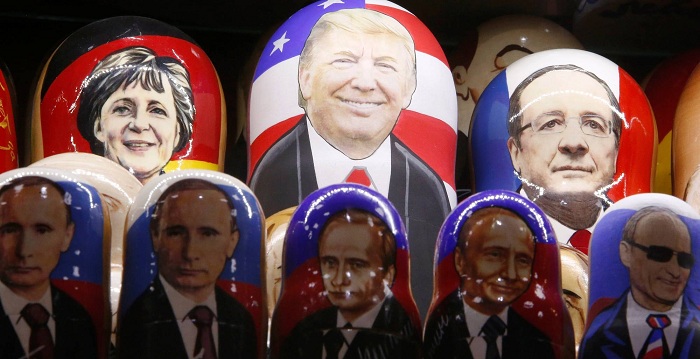Trump’s victory shakes Europe’s geopolitical order

U.S. election could be more shattering for Europe than Britain’s decision to leave the EU.
If anything, the election of Donald Trump was more shattering than Britain’s decision to leave the European Union.
The votes in two of the world’s most open and market-oriented economies both suggested dissatisfaction with globalization and economic integration. Mr. Trump’s election has raised questions about whether the U.S. will continue to extend the unconditional security guarantee that has underpinned European prosperity since World War II.
The vote ushers in a period of high uncertainty and anxiety for European governments. Election promises are often forgotten and Mr. Trump has contradicted himself and often changed his tone and emphasis.
But in his campaign speeches, Mr. Trump has provoked nervousness in Central and Eastern Europe by calling into question American support for the Western alliance and with his embrace of Russian leader Vladimir Putin. He has suggested he favors increasing trade barriers to protect American industries.
Mr. Trump has described climate change as a hoax, calling into question the survival of a global pact to curb climate emissions. Another worry is that economic uncertainty generated by his election could threaten Europe’s still-faltering recovery.
For European governments, Mr. Trump’s statements raise questions about American willingness to act as a global leader and therefore the survival of the American-led world order. Yet if the U.S. does retreat, Europe, beset by migration and other crises, appears too divided on national lines to fill the vacuum.
“We do not know what to expect from the U.S.A.,” said Manfred Weber, the leader of the center-right European People’s Party grouping in the European Parliament. “For the political culture in Europe, this is another wake-up call.”
In a joint letter, the heads of the European Council, Donald Tusk, and the European Commission, Jean-Claude Juncker, said that “today, it is more important than ever to strengthen trans-Atlantic relations.” But in calling for cooperation, they emphasized policies over which Mr. Trump has expressed skepticism, including the conflict in eastern Ukraine, climate change and migration.
Mr. Trump’s success, like the Brexit vote, has been widely interpreted in Europe as a victory for the politics of cultural identity. Ahead of elections next year in France, Germany and the Netherlands, European governments are looking over their shoulders at their own antiestablishment parties.
Among the first to congratulate Mr. Trump was presidential contender Marine Le Pen of France’s National Front, who tweeted: “Congratulations to the new president of the United States Donald Trump and to the American people, free!”
Dutch anti-Islam politician Geert Wilders wrote on his official Twitter page: “The people are taking their country back. So will we.”
In seeking to navigate relations with the new administration, European leaders face another challenge: they don’t know the president-elect or his entourage.
They have been suspicious of his rhetoric and have held Mr. Trump at arm’s length during the campaign. Mr. Trump’s sudden emergence into the political arena also means he doesn’t have a team of well-known Republicans to whom they can reach out—though that may change as he builds a foreign-policy team. American diplomats, even as they attempted to reassure allies of the historical continuity of American foreign and security policy, don’t know him either.
In fact, the European politician who knows Mr. Trump best is almost certainly Nigel Farage, who led the successful campaign to take the U.K. out of the EU.
On the face of it, the person best equipped to get the measure of Mr. Trump would be German Chancellor Angela Merkel, the most powerful and long-serving European leader. Though he severely criticized her decision to let in refugees in 2015, Mr. Trump has also said she is the leader he most admires.















































